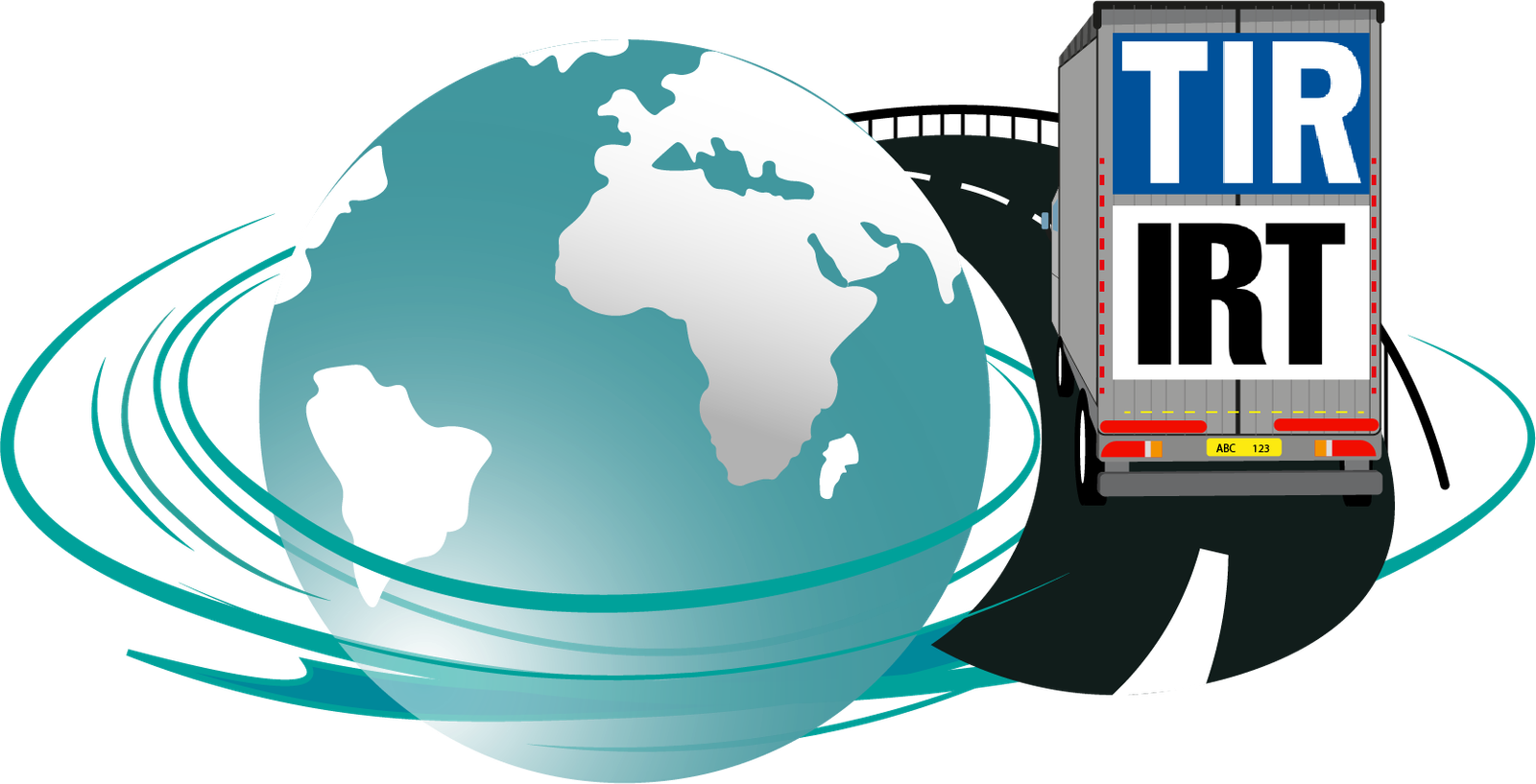Introduction: Current State of Road Transport in Pakistan
Road transport in Pakistan serves as a backbone for the country’s economy, facilitating the movement of goods and people across its expansive landscape. The nation’s road network spans approximately 264,000 kilometers, with highways and motorways accounting for around 12,500 kilometers. These roads connect urban centers, rural areas, and industrial zones, playing a crucial role in economic activities.
Despite its extensive reach, the condition of road infrastructure in Pakistan presents several challenges. Many roads are in a state of disrepair, with potholes, uneven surfaces, and inadequate signage contributing to a suboptimal driving experience. The types of vehicles predominantly used include private cars, motorcycles, buses, and trucks, which collectively cater to the transportation needs of millions. However, the rising number of vehicles has led to severe traffic congestion, particularly in major cities like Karachi, Lahore, and Islamabad.
Traffic congestion is not the only issue plaguing the road transport sector. Road safety remains a significant concern, with a high incidence of traffic accidents resulting in fatalities and injuries. Factors such as poor road conditions, reckless driving, and inadequate enforcement of traffic laws exacerbate the situation. Additionally, the environmental impact of road transport cannot be overlooked. The growing number of vehicles contributes to air pollution and greenhouse gas emissions, further complicating efforts to achieve sustainable development goals.
In summary, while road transport is indispensable for Pakistan’s economic vitality, the current state of infrastructure, coupled with safety and environmental challenges, necessitates comprehensive reforms. Addressing these issues will be pivotal in shaping the future of road transport in Pakistan, ensuring it can support the nation’s growth and development effectively.
Government Policies and Initiatives
The future of road transport in Pakistan is significantly shaped by a series of government policies and initiatives, which reflect a comprehensive approach toward enhancing infrastructure and connectivity. Central to these efforts is the China-Pakistan Economic Corridor (CPEC), a flagship project that has already begun to revolutionize road connectivity and trade between Pakistan and China. The CPEC initiative includes the construction of extensive road networks, expressways, and motorways, which are designed to facilitate seamless transportation of goods and passengers, thereby boosting economic activities and regional trade.
Moreover, the Pakistani government has committed substantial investments to various infrastructure projects aimed at modernizing the country’s road transport system. This includes the development of new highways and the expansion of existing road networks to accommodate increasing traffic demands. The National Highway Authority (NHA) plays a pivotal role in these endeavors, ensuring that strategic road links are established and maintained to support both domestic and international trade routes.
Public-private partnerships (PPPs) have also emerged as a key component of the government’s strategy to enhance road transport infrastructure. By leveraging private sector expertise and financing, these partnerships aim to expedite the completion of critical projects while ensuring high standards of quality and efficiency. Examples include the construction of toll roads and the development of smart transportation systems, which are expected to alleviate congestion and improve overall road safety.
Regulatory changes have been introduced to streamline the process of road development and maintenance. These reforms are designed to foster a more conducive environment for investment and innovation in the transport sector. For instance, new regulations have been implemented to ensure the timely execution of projects and to enhance the accountability of various stakeholders involved in road infrastructure development.
The role of provincial and local governments is equally crucial in shaping transport policy. These entities are responsible for implementing regional projects that address specific local needs and challenges. By coordinating with federal authorities, provincial and local governments can ensure that their initiatives align with national objectives, thereby contributing to a cohesive and integrated road transport system across Pakistan.
Technological Advancements and Innovations
The future of road transport in Pakistan is being significantly shaped by a range of technological advancements and innovations. One of the most notable developments is the introduction of Intelligent Transport Systems (ITS). These systems utilize advanced communication technologies to enhance traffic management, reduce congestion, and improve road safety. ITS includes a variety of applications such as real-time traffic monitoring, adaptive traffic signal control, and electronic toll collection.
Another critical component of technological progress in Pakistan’s road transport sector is the implementation of comprehensive traffic management solutions. These solutions leverage data analytics and artificial intelligence to optimize traffic flow and predict congestion patterns. For instance, smart traffic lights that adjust their timings based on current traffic conditions can significantly reduce waiting times and improve overall traffic efficiency.
In addition to ITS and traffic management, the integration of GPS and Internet of Things (IoT) technologies for vehicle tracking is transforming fleet management and logistics. These technologies enable real-time tracking of vehicles, ensuring better route planning, fuel efficiency, and timely deliveries. Companies can monitor vehicle health, driver behavior, and fuel consumption, leading to increased operational efficiency and reduced costs.
Electric vehicles (EVs) are also making headway in Pakistan, with several pilot projects and startups focusing on promoting environmentally friendly transportation options. The adoption of EVs is driven by the need to reduce carbon emissions and reliance on fossil fuels. Although the market is still in its nascent stages, the government’s incentives and policies are encouraging the growth of this sector.
Autonomous driving technology is another innovation that holds potential for transforming road transport in Pakistan. While fully autonomous vehicles may still be years away, semi-autonomous features such as lane-keeping assist, adaptive cruise control, and automated parking are already being integrated into modern vehicles. These features not only enhance safety but also provide a glimpse into the future of driverless cars.
Lastly, the development of smart road infrastructure is paving the way for more efficient and safer transportation networks. This includes the installation of smart traffic signals, sensors, and connected streetlights that communicate with vehicles and traffic management centers. Examples of these innovations can be seen in pilot projects such as the Lahore Safe City Project, which aims to create a secure and efficient urban environment through the use of advanced surveillance and traffic management technologies.
Sustainable Transport Solutions
The future of road transport in Pakistan hinges on the adoption of sustainable solutions that address environmental concerns and promote efficient mobility. One of the most critical aspects is the reduction of carbon emissions, which necessitates a shift from conventional fossil fuel-powered vehicles to more eco-friendly alternatives. Promoting public transport is a key strategy in this regard. Enhanced and reliable public transit systems can significantly decrease the number of private vehicles on the roads, thereby reducing traffic congestion and lowering overall emissions.
Another crucial step towards sustainable road transport is the encouragement of Electric Vehicles (EVs). The government can play a pivotal role by offering incentives such as tax breaks, subsidies, and the development of charging infrastructure. Such initiatives can make EVs more accessible and appealing to the masses, facilitating a gradual transition away from reliance on fossil fuels. Additionally, implementing stringent policies to limit the use of fossil fuels, such as increased fuel taxes or restrictions on older, less efficient vehicles, can further drive this shift.
Non-motorized transport forms, such as cycling and walking, also hold significant potential for reducing environmental impact. Developing dedicated bicycle lanes and pedestrian pathways can encourage more people to opt for these healthier and more sustainable modes of transport. Green urban planning is essential to integrate these elements effectively. This involves designing cities in a way that minimizes the need for long commutes, promotes mixed-use developments, and ensures that residential areas are well-connected to commercial and recreational zones.
In conclusion, the transition towards sustainable road transport in Pakistan will require comprehensive efforts encompassing policy reforms, infrastructural development, and public awareness campaigns. By prioritizing environmental sustainability and promoting diverse, eco-friendly transport options, Pakistan can pave the way for a cleaner, greener future.
Economic Impact and Opportunities
The enhancement of road transport infrastructure in Pakistan presents substantial economic implications. Improved roads facilitate more efficient movement of goods and people, leading to a noticeable boost in trade activities. For instance, businesses can transport their products more swiftly and cost-effectively, which in turn can lead to reduced production costs and increased competitiveness in both local and international markets. Enhanced road networks also attract new investments, as investors are more likely to establish operations in regions with reliable transportation systems.
Tourism, too, stands to benefit significantly from better road infrastructure. Easier access to scenic and historic sites can lead to an increase in domestic and international tourist inflows. This, in turn, stimulates the local economies of tourist destinations by creating demand for services such as hotels, restaurants, and local crafts. The knock-on effect is the creation of numerous job opportunities in these sectors, contributing to a reduction in unemployment rates and an overall improvement in living standards.
Furthermore, the construction and maintenance of road infrastructure itself generate substantial employment opportunities. The development projects require a diverse workforce, ranging from engineers and construction workers to technology experts who deploy and manage smart road systems. The ongoing need for road maintenance ensures a steady stream of jobs, providing long-term economic stability for communities involved in these sectors.
Consider the case of the China-Pakistan Economic Corridor (CPEC). The infrastructural developments under this initiative have already shown significant economic benefits for regions along its route. Improved connectivity has led to increased trade and industrial activities, particularly in previously underdeveloped areas. Local businesses have experienced growth due to better access to markets, and new enterprises have emerged, creating a more vibrant economic landscape.
Challenges and Barriers to Progress
The development of road transport in Pakistan faces a myriad of challenges that impede its progress. One of the primary obstacles is the limitation of funding. The allocation of financial resources for infrastructure projects is often inadequate, leading to delays and substandard construction. Additionally, corruption exacerbates these financial constraints. Mismanagement and embezzlement of funds further hinder the development of efficient road networks.
Lack of technical expertise is another significant barrier. There is a shortfall of skilled engineers and technicians who can design, build, and maintain modern transportation systems. This technical inadequacy results in poorly planned and executed projects that fail to meet international standards. Political instability also plays a critical role. Frequent changes in government and policy direction result in inconsistent planning and execution of transport projects, causing delays and inefficiencies.
Socio-economic barriers further complicate the situation. The disparity between urban and rural areas means that infrastructure development is often concentrated in cities, leaving rural regions underserved. This urban-rural divide exacerbates the inequality in access to quality transportation, affecting economic opportunities and quality of life for rural populations. Additionally, the affordability of advanced transport solutions remains a significant issue. For a large segment of the population, high costs associated with modern infrastructure are prohibitive, limiting the adoption of new technologies and solutions.
In conclusion, addressing these challenges requires a multifaceted approach. Increased funding, anti-corruption measures, investment in technical training, political stability, and policies aimed at reducing socio-economic disparities are essential for the sustainable development of road transport in Pakistan. Only through comprehensive and coordinated efforts can Pakistan overcome these barriers and pave the way for a more efficient and equitable transportation system.
Role of Private Sector and International Collaboration
The future of road transport in Pakistan is significantly influenced by the contributions of the private sector and international collaborations. Private companies have been instrumental in spearheading numerous advancements within the transportation infrastructure. Through public-private partnerships, the government and private enterprises have managed to pool resources, share expertise, and undertake large-scale development projects. These partnerships have proven to be effective in accelerating the pace of infrastructure development, improving the quality of road networks, and enhancing overall transportation services.
Foreign investments have also played a pivotal role in transforming Pakistan’s road transport landscape. International investors have brought in capital, technological know-how, and global best practices, which have been crucial in modernizing the country’s road infrastructure. Collaborations with international organizations, such as the Asian Development Bank and the World Bank, have provided both financial support and technical assistance for various highway and road projects. These collaborations have not only improved the quality of the road network but also contributed to the capacity building of local institutions and workforce.
Several successful examples of public-private partnerships and international collaborations underscore the potential for future projects. The Lahore-Sialkot Motorway is a prime example, where a consortium of local and international companies came together to construct a state-of-the-art motorway, significantly reducing travel time and boosting economic activities in the region. Another notable project is the Karachi-Hyderabad Motorway, which was developed through a public-private partnership, enhancing connectivity and facilitating smoother logistics for industries.
The potential for future projects remains vast, with opportunities for further collaborations and investments. The ongoing China-Pakistan Economic Corridor (CPEC) initiative exemplifies a comprehensive collaboration between the two nations, focusing on developing a robust transportation network across Pakistan. Such projects not only promise to revolutionize the road transport sector but also stimulate economic growth, create jobs, and improve regional connectivity.
Conclusion and Future Outlook
The future of road transport in Pakistan holds substantial promise, contingent upon the successful implementation of ongoing and planned initiatives. The modernization of infrastructure, integration of advanced technologies, and adoption of sustainable practices are pivotal to this transformation. The key points discussed in this blog emphasize the importance of a cohesive strategy that aligns with global standards while addressing local challenges.
One of the foremost benefits of these initiatives is improved connectivity across urban and rural areas, fostering economic growth and social inclusion. Enhanced road networks will facilitate smoother transportation of goods and services, thereby boosting trade and commerce. Moreover, the integration of intelligent transport systems (ITS) promises to enhance traffic management, reduce congestion, and improve overall road safety.
Environmental sustainability remains a critical focus, with efforts directed towards reducing carbon emissions and promoting the use of electric and hybrid vehicles. Such measures are anticipated to significantly mitigate the environmental impact of road transport, contributing to a cleaner and healthier environment for future generations.
The vision for a modern, efficient, and sustainable road transport system in Pakistan also entails active participation from various stakeholders, including government bodies, private sector entities, and the general public. Collaborative efforts are essential to drive innovation, ensure the effective implementation of policies, and address any emerging challenges promptly.
In conclusion, the path forward for road transport in Pakistan is one of opportunity and potential. With concerted efforts and a shared commitment to progress, Pakistan can establish a robust, efficient, and sustainable road transport system that not only meets the needs of today but also paves the way for a prosperous future. Stakeholders are encouraged to actively engage in this transformative journey, contributing to the realization of a modernized transport landscape that benefits all.



